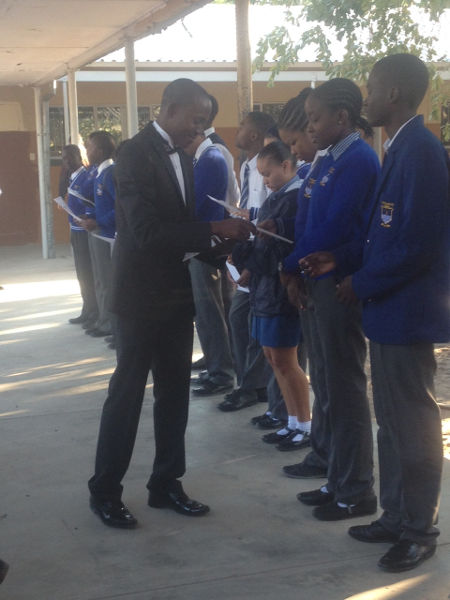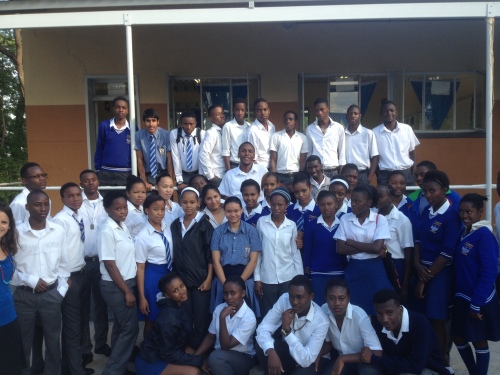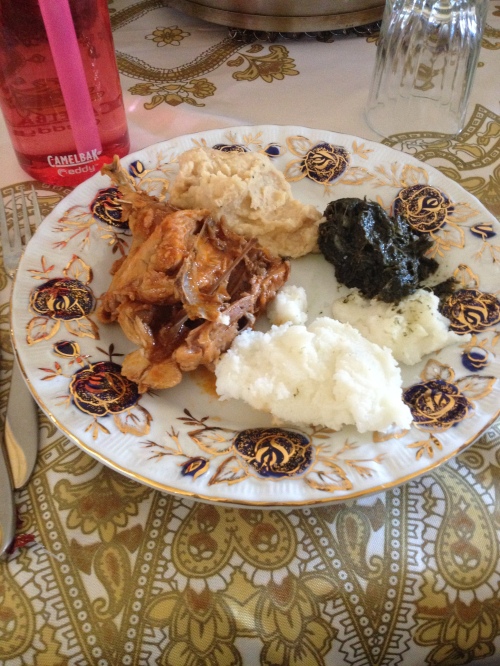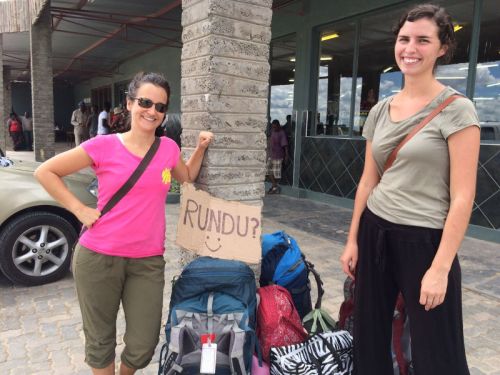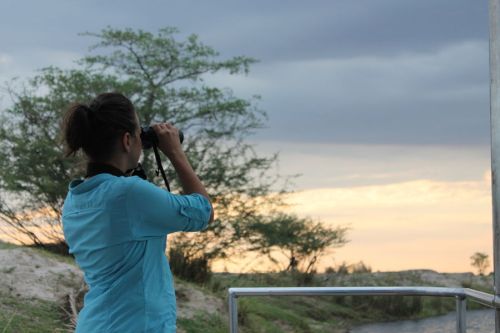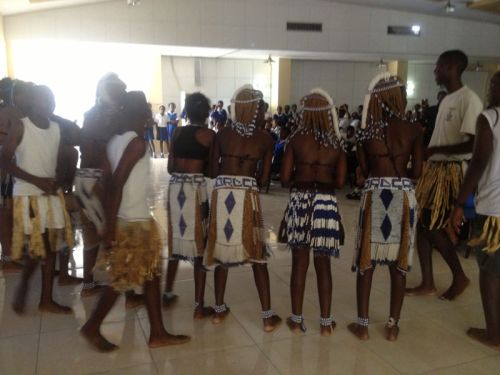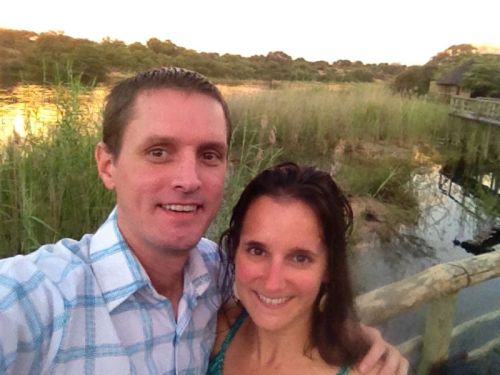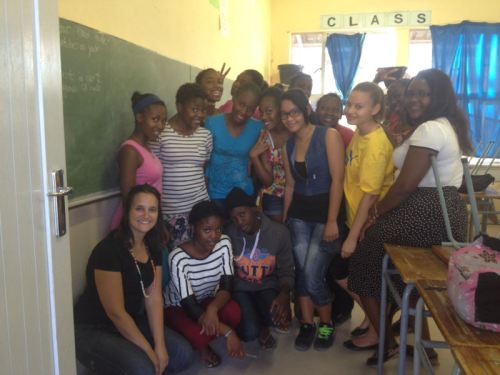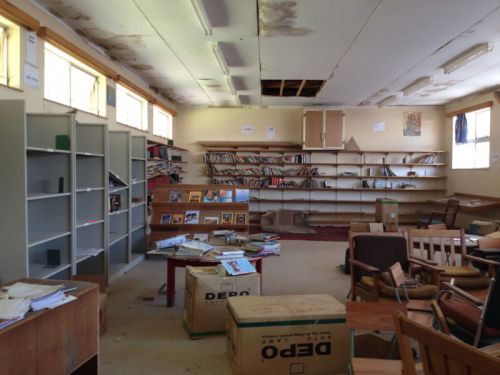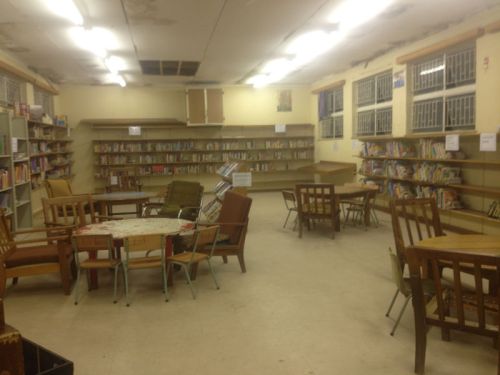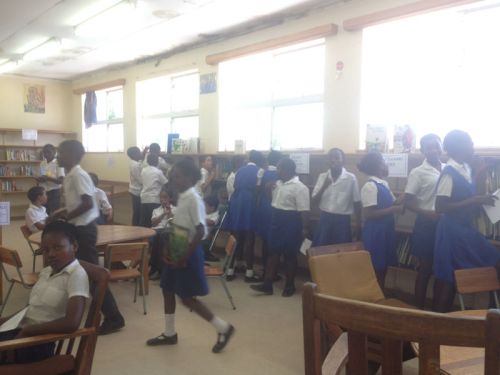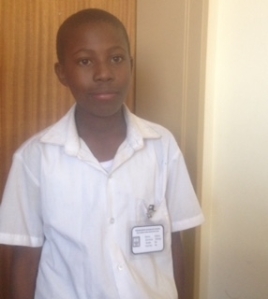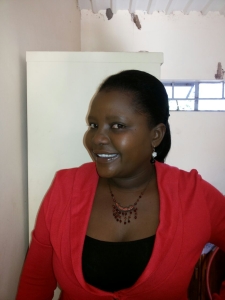This week we gather with our Peace Corps group, Group 38, in Windhoek for our Close of Service Conference. It is basically the graduation ceremony for all Peace Corps groups. We will have some sessions on reintegrating back to America, job searching and reflecting on our service. We’re being put up in a nice hotel (thanks American tax payers!) and breakfast and dinner are included for the 2.5 day conference. Josh and I will stay til the end of the week to do all our required medical tests. The last time our entire group was together was our Mid-Service conference, and before that for our Re-connect (6 months into service) and our 2 month Pre-Service Training.
We get back to Rundu on Saturday, we have one last full week of work and then our last days of work are July 13th. On July 14 we come back down to Windhoek for all the last minute paperwork, etc. and then on July 17 we officially become Returned Peace Corps Volunteers (RPCVs).
Here are my best memories, moments and lessons of my Peace Corps experience, Numbers 10-18. You can find Numbers 19-24 here and Numbers 25-30 here.
#10 Sharing holidays with my Namibian friends – Fulfilling Goal # 2
It’s been so exciting to share holidays with my Namibian friends, family and learners. Thanksgiving, Christmas in the village, 4th of July, bachelorette parties, the list goes on and on. I loved explaining the kinds of food Americans eat and how we celebrate each holiday.
I’ll never forget what my friend Kazao said at our Thanksgiving celebration last year. “I couldn’t go to America so America came to me. I’m the lucky one for having been chosen.” This made me tear up – this is one of the reasons the Peace Corps exists – cultural exchange. It’s been one of the most gratifying parts of my service, learning about how Namibians live and sharing what real life is like in America.
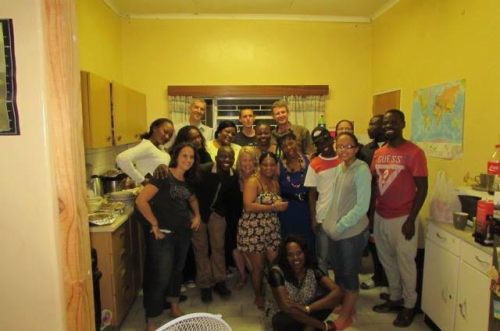
Thanksgiving 2014 hosted by JT and Queen (fellow PCVs in Rundu)
Some days you really wonder if anything you’re saying is getting through to your kids. But then some days you overhear some kids say things to one another and you know that some have been listening.
One day at volleyball practice I heard one player say to the other “Stop being an oompa-loompa!!” In the upper level grades here in Namibia learners are broken into “High Level” and “Ordinary Level” but I always called my grade 11s Extraordinary Level. I overheard one of my learners tell a higher level learner once “Oh, extraordinary level is actually better than higher level!”
Hearing little things like this always made me smile.
#12 Surprising people in our small community
I love city living, and while I’ve missed the amenities and anonymity I had in Denver, I have enjoyed living in a small community. As one of the few Americans in Rundu and Namibia, walking around town I often feel like a celebrity.
There are white people in Namibia. Most white people tend to stick together. I’m friends with both black and white people in Namibia. Most white people in our town have cars. PCVs can’t afford cars and aren’t allowed to drive. Consequently, we meet a lot of people walking all over our communities. Where I go running, I am on a trail that white people have little reason to be on.
When I am out with my Namibian friends in town we will get funny looks from people in our community. On my most recent trip to Windhoek with the volleyball team, my learners commented that the people in the mall were staring at us. They said to me “these white people are wondering what you’re doing with us.” The effects of apartheid are still felt here.
I’ve never been in a position where I felt like I was breaking down barriers a little bit, and it feels good.
#13 Changed, fresh perspective
Living overseas has changed the way I see the world. I’ll never view things through the same lense again, and I have Namibia to thank for that. Former PC Director Anthony Williams once said “Peace corps service isn’t a moment. Service is a mindset.” It’s true on so many levels.
Learning not to take things too seriously, remembering what matters most in life – being healthy, having enough food to eat, and having close friends and family. Living among people who have to deal with death from a very young age, and often, who don’t have enough food to eat, will change the way you see the world. I knew this existed before I came here, but now I have faces and names to attach to such circumstances. These are people in my community.
My colleagues always are grateful to wake up, and also think the afterlife will be a great thing, too. You have to do your best to let things roll off. Not everyone is afforded the luxury of getting old, especially in the developing world.
I read once that if there’s anything Americans are scared of, it’s inconvenience. I think this is true. I’ve had to shift and adjust myself to get used to being inconvenienced in Namibia. Uncomfortable combi rides, long lines at any store, not getting what you want often, cold showers, things not going as planned, frequent water and power outages, no electricity at all (for many in Namibia, not us), inefficient or traditional housing situations, dealing with very hot or cold temperatures with no A/C or heat, personal space not being respected and my cultural boundaries being pushed daily. I’ve grown a deeper appreciation of the USA, but also a deeper criticism for some things about my culture too now.
Experiencing all these things first hand has changed the way I see things. I’m a different person for it.
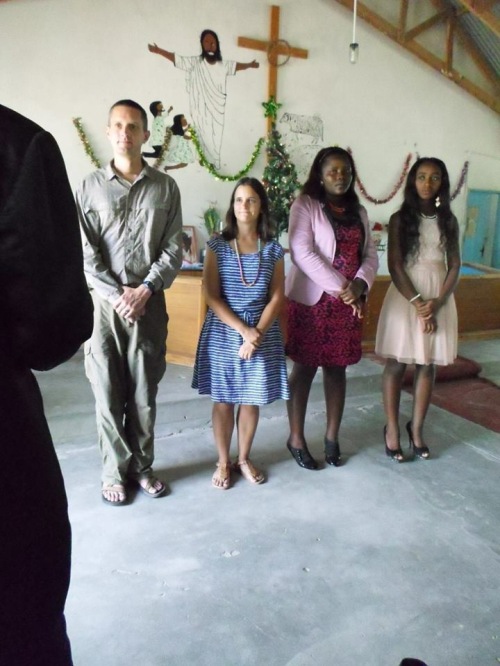
Being introduced at church for 20 minutes for Village Christmas 2013. One of my most unforgettable moments of our time in Namibia. Thanks to my friend Lucy and her family for hosting us.
Part of being a Peace Corps volunteer is learning how to be flexible and adjust to your new surroundings. Josh and I have always been big hikers, but since the mountains aren’t within a 20 minute drive like they are in Colorado, we found new ways to spend our alone and together time.
I got into workout videos and baking cakes. In Namibia I’m regarded as a decent cook! Josh got into different man crafts. Together we discovered birding, sundowners and safari rides.
#15 Facing and Overcoming challenges. Truly getting out of my comfort zone.
I’m not a natural-born teacher. Living overseas isn’t easy, and working through challenges every day could get exhausting. However, learning to find ways to deal with difficulties and (sometimes) overcoming them gave me great satisfaction. You don’t have to leave your home country for this to occur, but it adds an extra layer of satisfaction to deal with specific problems here that don’t arise at home.
#16 Teaching
I’ve never been an expert in my career. I’m a generalist, and while being the jack of all trades, master of nothing can be a good thing I have always wanted to be a master at something. In Namibia I am actually an expert at something – English! It’s been new for me to be the go-to person for all answers on anything, and I’ve enjoyed it. Learners and colleagues alike come to me often for random questions they have about English.
My classes were big and they were often loud. However, sometimes when I would read to my learners, it would get so quiet. You could hear a pin drop. There were other times when I would say something that really grabbed their attention and I could see all 50 faces looking at me. Though those days felt few and far between, they were very, very good days that I’ll always remember. Working in the library you can see how much books can transform people.
I’ve really enjoyed having a multi-dimensional job. I’ve grown professionally and personally from teaching. While Peace Corps can be frustrating, you could never say it’s boring. I’ve had some really boring jobs. This is by far the most interesting.
#17 Being in my friend Shikongo’s wedding and attending 2 other weddings
I felt incredibly honored to be in my friend Shikongo’s wedding. Josh and I got to observe and participate in Vambo wedding traditions. We were treated like family the whole weekend and danced and celebrated with all friends and family. It was a really special day.
#18 Admiring the beauty of nature in its finest state here in Africa
Seeing animals in the wild, watching mama elephants protect their young, seeing giraffes drink at a watering hole, watching wild dogs hunt, snakes in classrooms (can’t say I enjoyed this), seeing lizards all over, hearing frogs lull us to sleep with their croaks at night, the trees, seeing Chameleons. Africa does not disappoint with the nature-gazing you can enjoy.
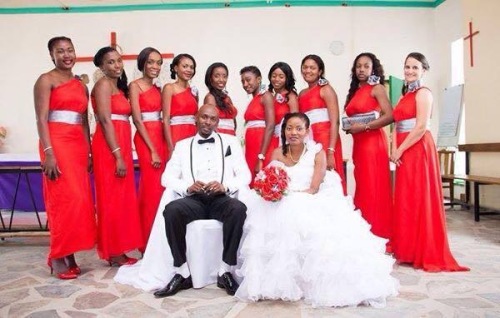
My friend Shikongo’s wedding






